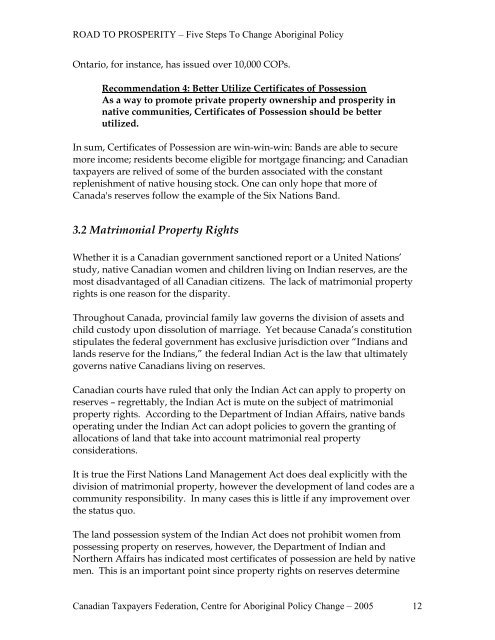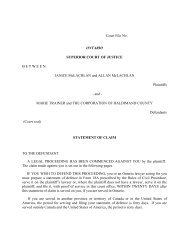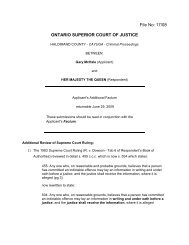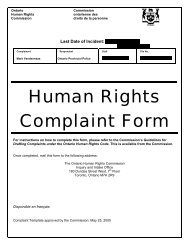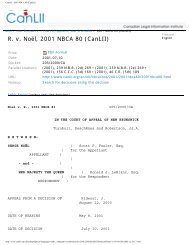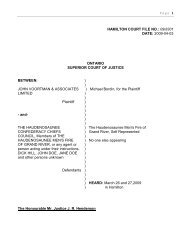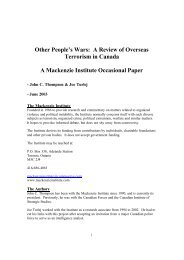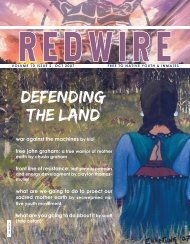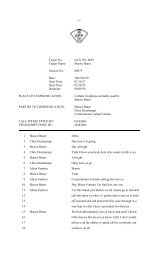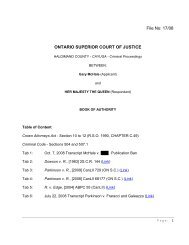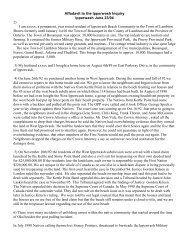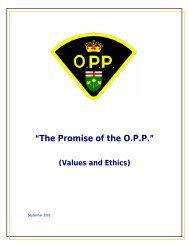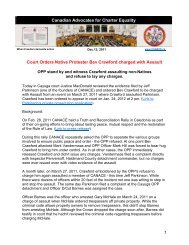Tanis Fiss, director Canadian Taxpayers Federation Centre for ...
Tanis Fiss, director Canadian Taxpayers Federation Centre for ...
Tanis Fiss, director Canadian Taxpayers Federation Centre for ...
Create successful ePaper yourself
Turn your PDF publications into a flip-book with our unique Google optimized e-Paper software.
ROAD TO PROSPERITY – Five Steps To Change Aboriginal PolicyOntario, <strong>for</strong> instance, has issued over 10,000 COPs.Recommendation 4: Better Utilize Certificates of PossessionAs a way to promote private property ownership and prosperity innative communities, Certificates of Possession should be betterutilized.In sum, Certificates of Possession are win-win-win: Bands are able to securemore income; residents become eligible <strong>for</strong> mortgage financing; and <strong>Canadian</strong>taxpayers are relived of some of the burden associated with the constantreplenishment of native housing stock. One can only hope that more ofCanada's reserves follow the example of the Six Nations Band.3.2 Matrimonial Property RightsWhether it is a <strong>Canadian</strong> government sanctioned report or a United Nations’study, native <strong>Canadian</strong> women and children living on Indian reserves, are themost disadvantaged of all <strong>Canadian</strong> citizens. The lack of matrimonial propertyrights is one reason <strong>for</strong> the disparity.Throughout Canada, provincial family law governs the division of assets andchild custody upon dissolution of marriage. Yet because Canada’s constitutionstipulates the federal government has exclusive jurisdiction over “Indians andlands reserve <strong>for</strong> the Indians,” the federal Indian Act is the law that ultimatelygoverns native <strong>Canadian</strong>s living on reserves.<strong>Canadian</strong> courts have ruled that only the Indian Act can apply to property onreserves – regrettably, the Indian Act is mute on the subject of matrimonialproperty rights. According to the Department of Indian Affairs, native bandsoperating under the Indian Act can adopt policies to govern the granting ofallocations of land that take into account matrimonial real propertyconsiderations.It is true the First Nations Land Management Act does deal explicitly with thedivision of matrimonial property, however the development of land codes are acommunity responsibility. In many cases this is little if any improvement overthe status quo.The land possession system of the Indian Act does not prohibit women frompossessing property on reserves, however, the Department of Indian andNorthern Affairs has indicated most certificates of possession are held by nativemen. This is an important point since property rights on reserves determine<strong>Canadian</strong> <strong>Taxpayers</strong> <strong>Federation</strong>, <strong>Centre</strong> <strong>for</strong> Aboriginal Policy Change – 2005 12


